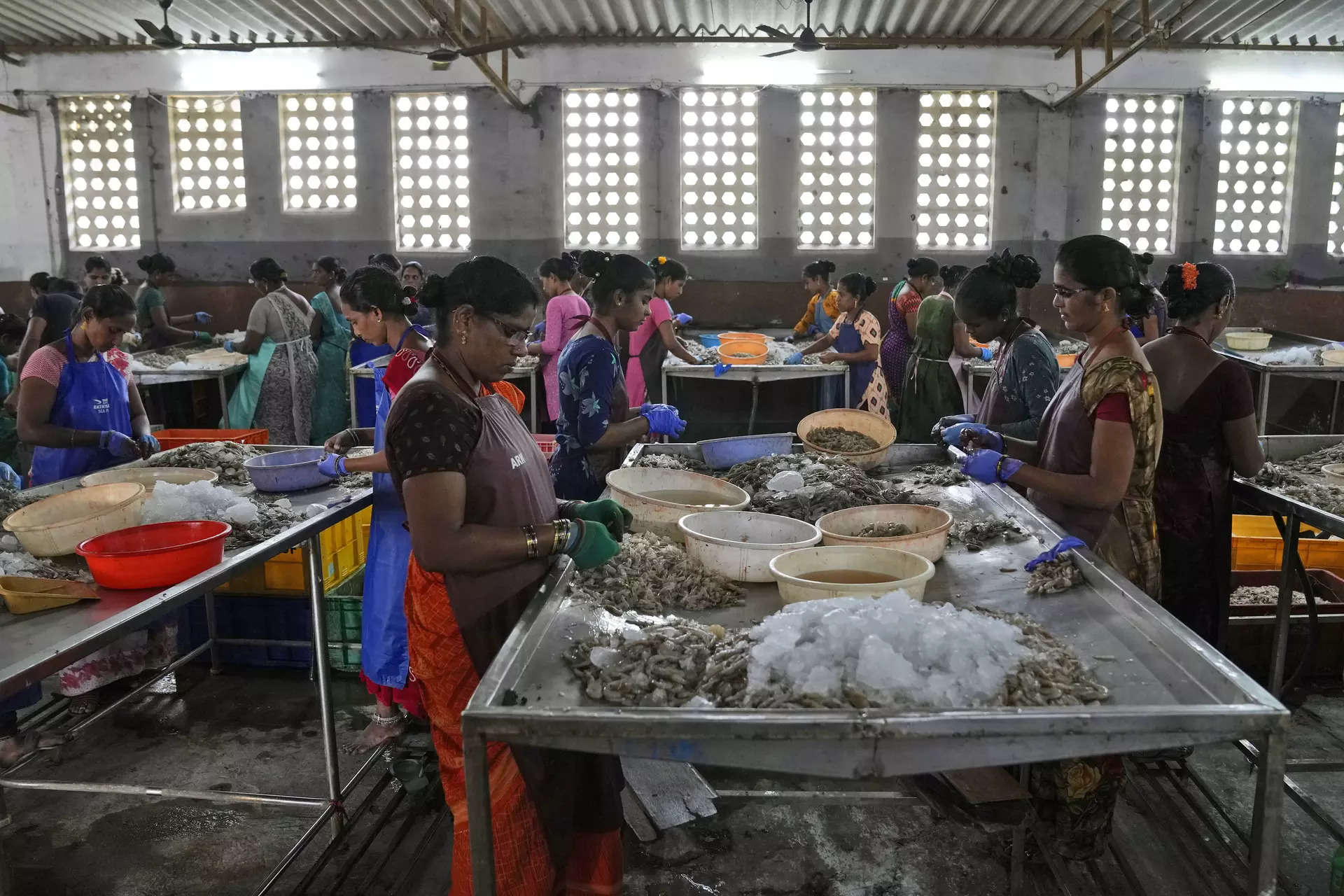
[ad_1]
It mentioned that every one its models are registered with MPEDA (Marine Merchandise Export Improvement Authority) and FSSAI (Meals Security and Requirements Authority of India) and authorized by EIC (export inspection council) as mandated by the regulation.
Moreover, 46 unbiased pre-processing models are registered by the authority.
The shrimp hatcheries and aquaculture farms are registered with the Coastal Aquaculture Authority (CAA) and State Fisheries Departments primarily based on their respective areas.
MPEDA additionally enrols aquafarms to bolster the traceability system of aquaculture merchandise and cling to nationwide and worldwide regulatory provisions, together with Seafood Import Monitoring Programme (SIMP) of the US.
“The manufacturing and processing techniques are commonly monitored by regulatory businesses in India and are subjected to audits by inspectors of the US FDA (Meals and Drug Administration), European Fee, GAC of China, Export Inspection Company, MPEDA, and many others., along with scores of personal and certification audits,” it mentioned. It added that the pre-processing and processing models comply with a HACCP (Hazard Evaluation and Crucial Management Level)-based meals security administration system as per the US Code of Federal Rules. It additionally mentioned that to advertise security of merchandise, the utilization of pharmacologically lively substances has been banned in aquaculture since 2002.
The nationwide laws and monitoring measures such because the Nationwide Residue Management Plan, ELISA screening labs, in-house labs, and pre-export checks make sure that the meals security hazards, together with antibiotic residues, don’t enter the product worth chain and pose any client well being threat.
“The inter-departmental job forces in states monitor hatcheries, farms, aquaculture enter retailers and feed mills and punish the violators to curtail the sale and utilization of unauthorized inputs, together with banned antibiotics within the aquaculture sector,” it added.
The ministry mentioned that measures have been taken to impose a ban on the utilization of the 2 antibiotics Chloramphenicol and Nitrofuran in all food-producing animal techniques.
MPEDA has additionally initiated a certification scheme, ‘Shaphari’, for the manufacturing of high quality produce.
The ministry mentioned that to keep up wonderful ranges of hygiene and security, all of the technicians and employees within the pre-processing and processing models, together with the farmers, technicians, and employees in hatcheries and farms, obtain in depth coaching on sanitary practices, meals security hazards, and good administration practices.
These coaching programmes are performed by numerous businesses, together with MPEDA, EIAs (export inspection businesses), NaCSA (Nationwide Centre for Sustainable Aquaculture), state departments, and ICAR (Indian Council of Agricultural Analysis) institutes, underscoring the dedication to the welfare of the employees and the standard of the merchandise.
Additional, it mentioned that any entity engaged in enterprise exercise is licensed by the native governing physique and is obliged to comply with the labour welfare legal guidelines prescribed by the Union and state governments.
“The seafood pre-processing and processing models preserve all data associated to processing, high quality checks, worker coaching, and different necessities of the relevant laws and guidelines,” it mentioned, including that they periodically present the companies of a registered medical practitioner to handle employees’ well being points.
It added that the State Labour Division commonly screens the actions of each organised and unorganised sectors concerned in aquaculture and fish processing.
“It takes acceptable motion to guard the curiosity and welfare of the labourers. India is steadfast in its dedication to producing high quality seafood merchandise free from well being hazards,” the ministry mentioned.
This dedication is upheld by means of the adoption of sustainable practices to satisfy home and worldwide market demand, it mentioned, including, India has additionally established world-class amenities within the fish processing sector, that are commonly inspected and monitored by numerous authorities businesses.
“We strongly refute the allegations levelled towards the Indian shrimp farming and processing sector,” it mentioned.
India achieved document exports of seafood each when it comes to quantity and worth (each USD and Rupee) by transport 17,35,286 tonnes of seafood price Rs 63,969.14 crore (USD 8.09 billion) through the 2022-23 fiscal.
Throughout FY23, the export improved in amount phrases by 26.73 per cent, in rupee phrases by 11.08 per cent, in USD phrases by 4.31 per cent.
Frozen shrimp remained the key export merchandise when it comes to each amount and worth whereas the US and China turned out to be the key importers of India’s seafood.
Frozen shrimp, which earned Rs 43,135.58 crore (USD 5,481.63 million), retained its place as essentially the most important merchandise within the basket of seafood exports.
Frozen shrimp accounted for a share of 40.98 per cent in amount and 67.72 per cent of the entire USD earnings.
The general export of frozen shrimps throughout 2022-23 was pegged at 7,11,099 tonnes.
The US imported 2,75,662 tonnes of frozen shrimp, adopted by China at 1,45,743 tonnes.








